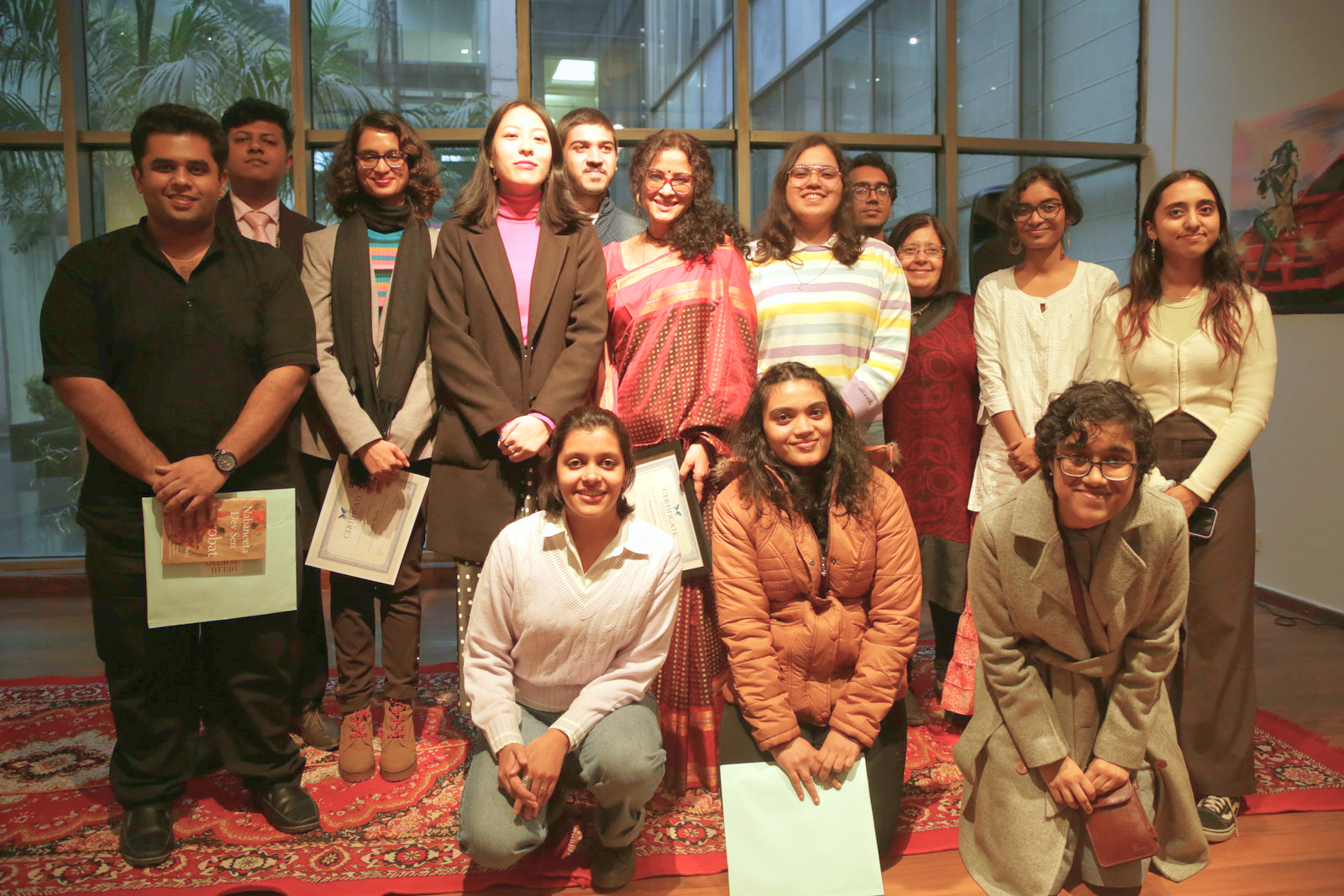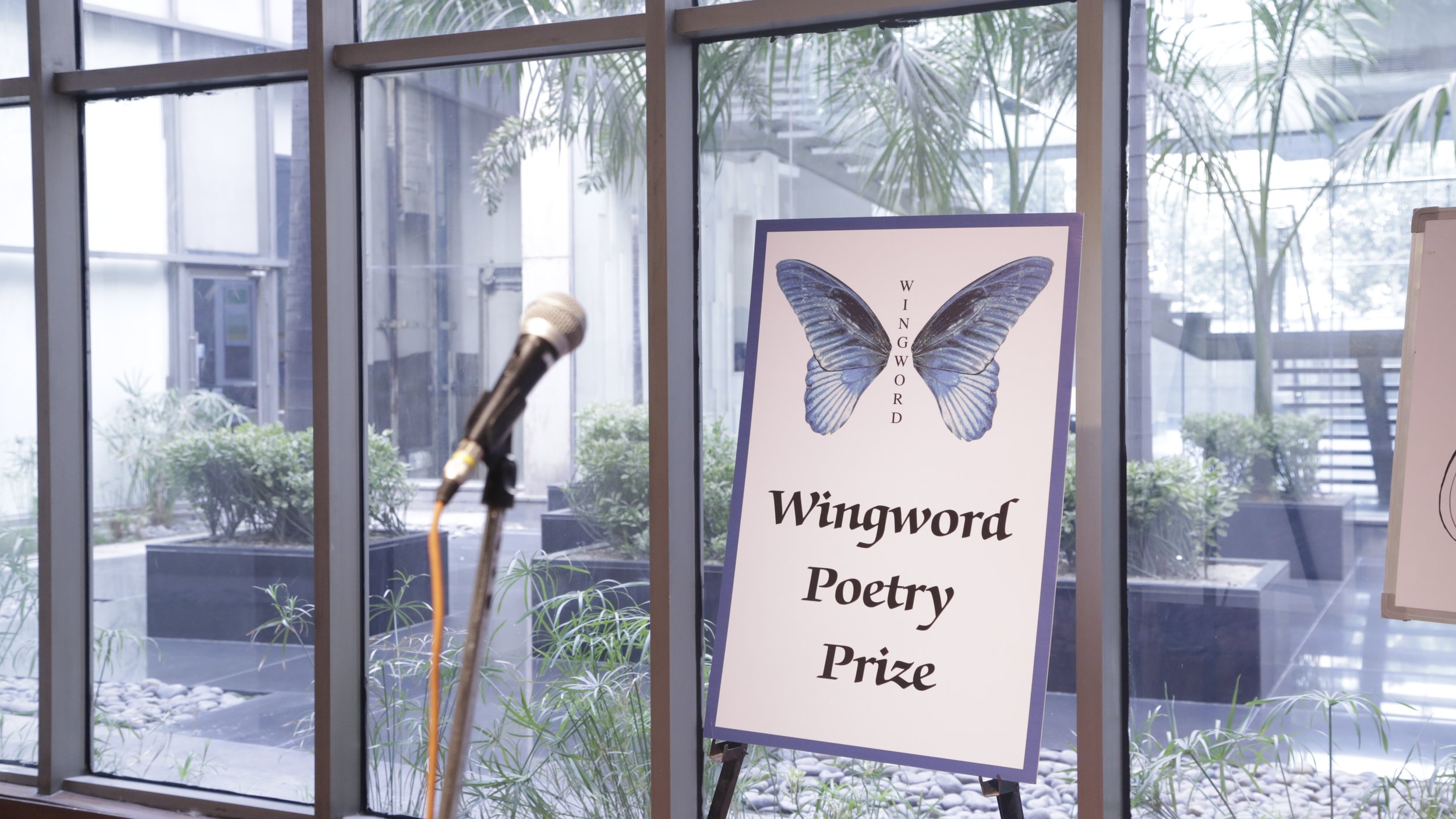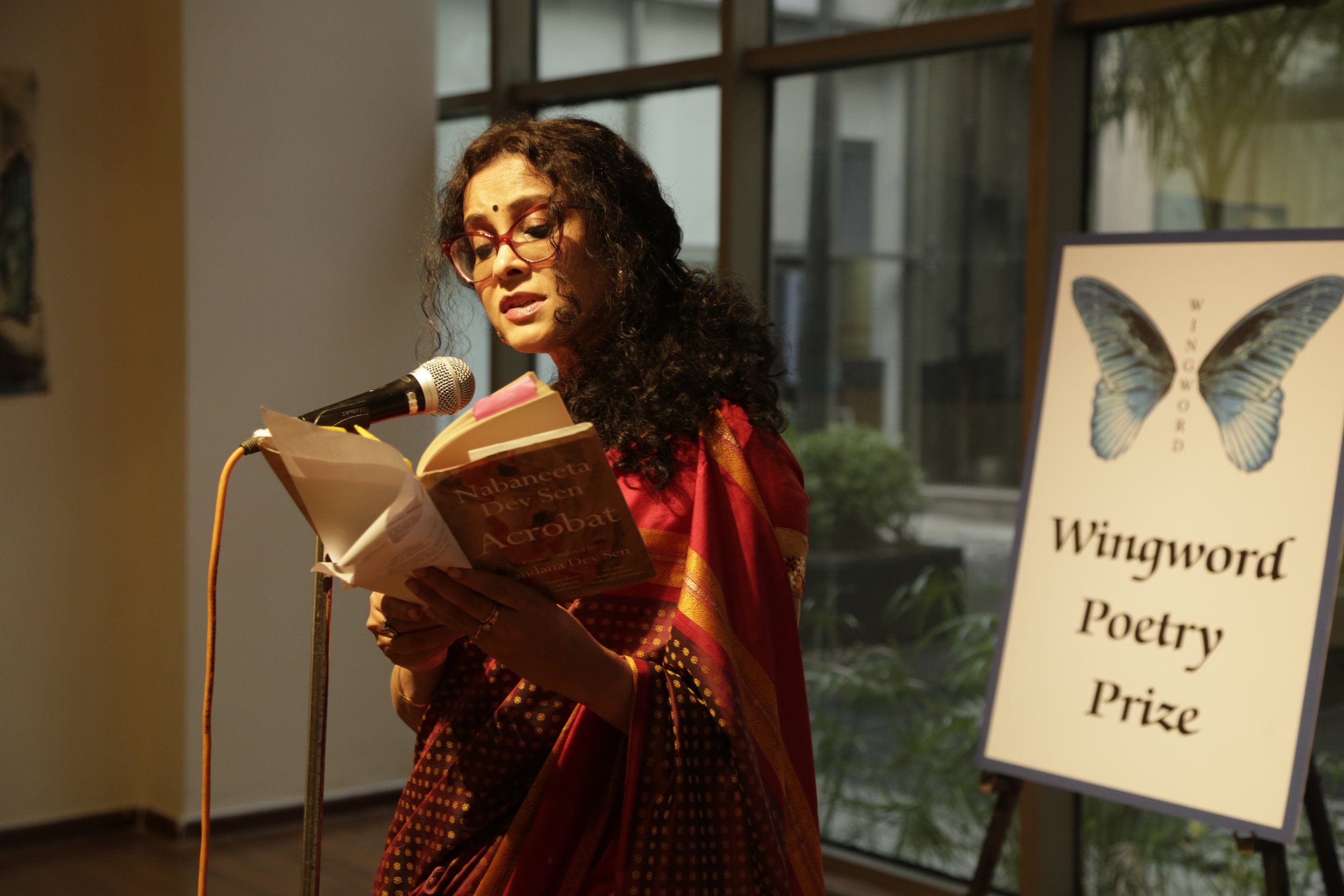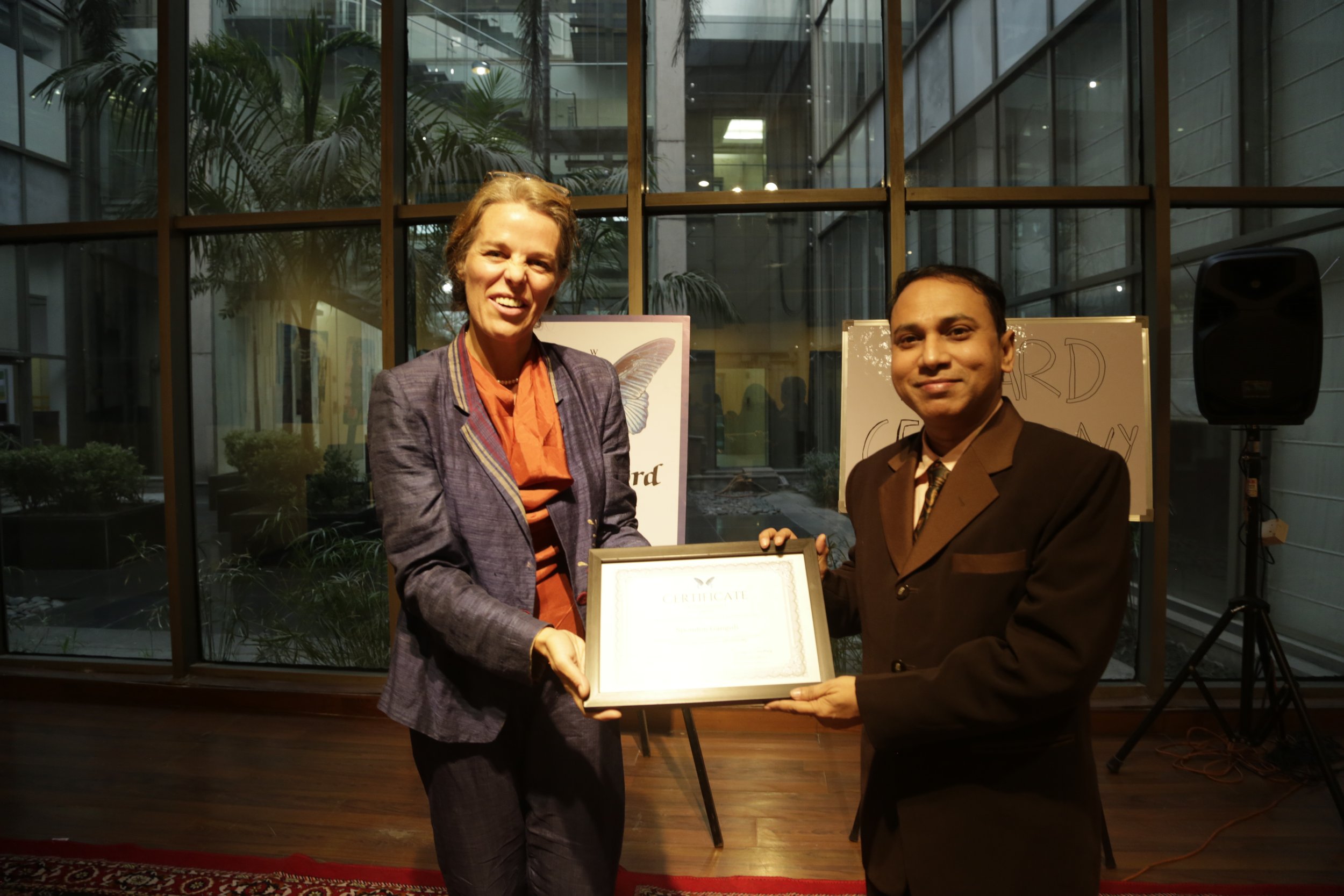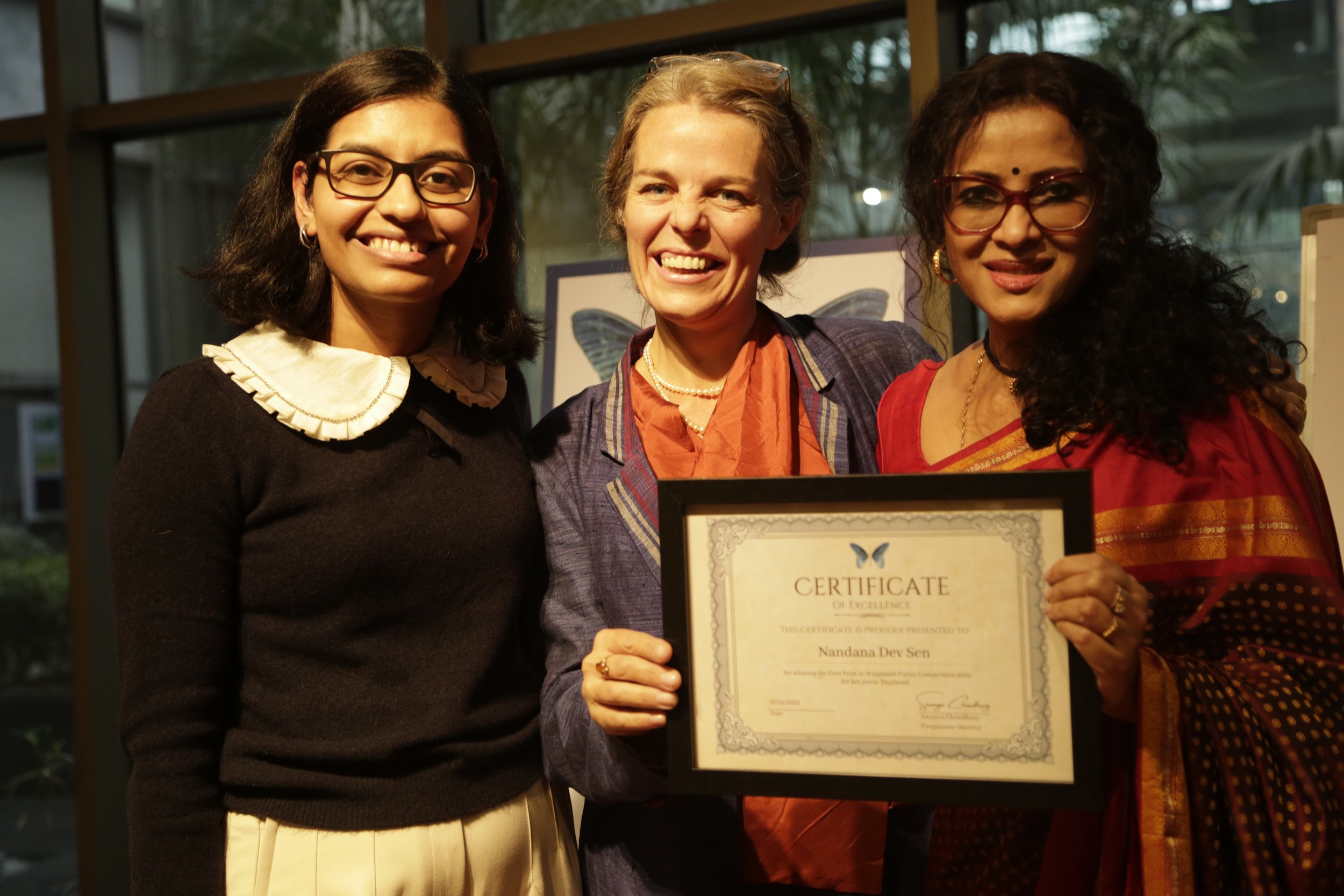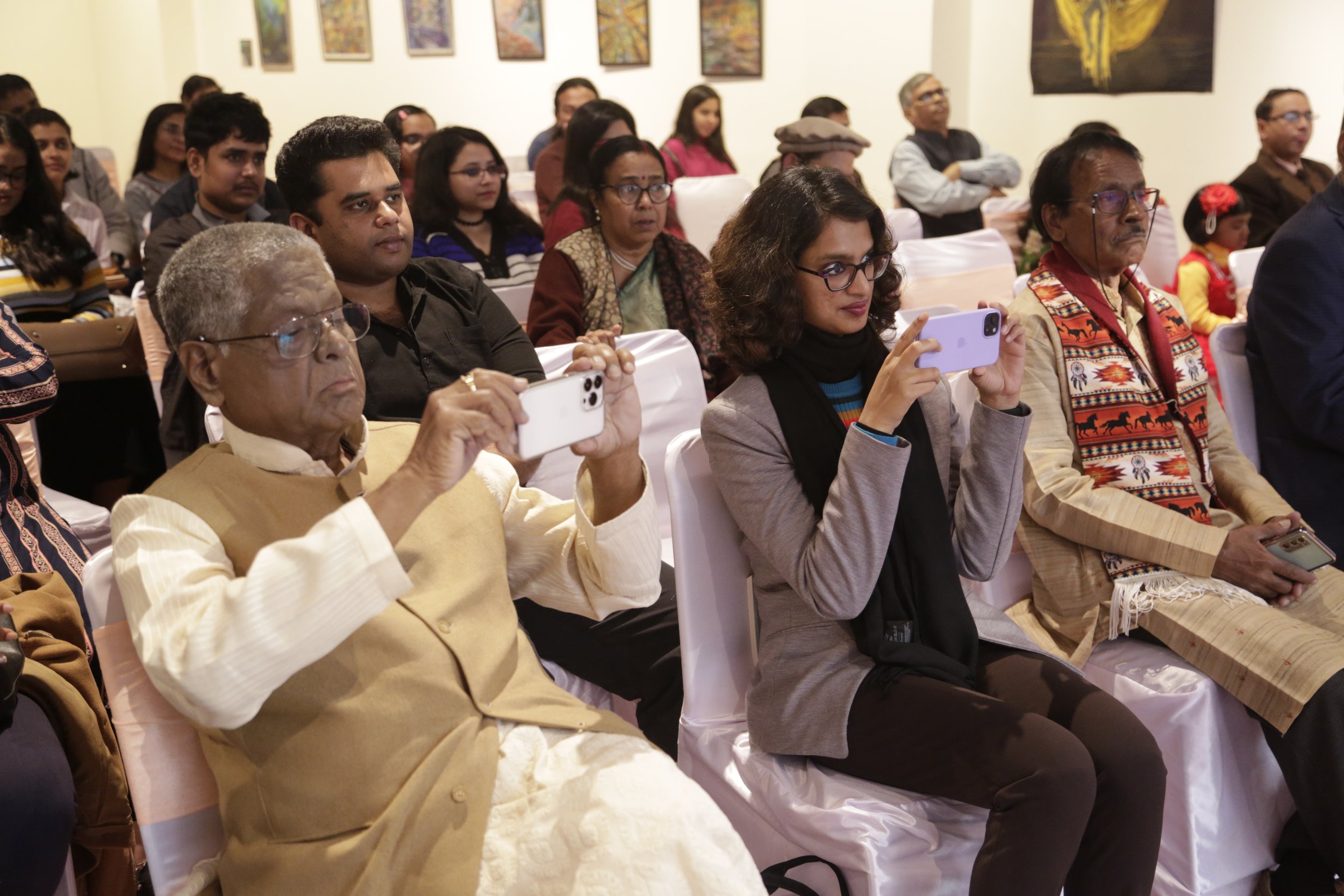THE FOLLOWING POEM BY ESHNA SHARMA WON THE FIRST PRIZE OF ONE LAKH RUPEES IN WINGWORD POETRY COMPETITION 2019
Eshna Sharma pens down a poem which strongly talks about the silence over the mistreatment of women in the house. At the dinner table the family talks about any and everything, from work to politics but it is rare. Rather it is never that the conversation is about why her father is alcoholic, why her mother is taking more than enough painkillers, why her cousin is divorced or why her sister is in an abusive relationship. The conversations are around super-moon and the sale at the mall but it is never about the issues faced by the ladies of the house. The poet is asked if the family should look for a boy for her now that Sharma ji’s daughter is getting married. The poet denies and opens up about her sexuality. It feels like this poem is an indication about how the situations in the family affects the mental health of a person and their perception towards relationships and love. The poem is powerful in its message. Short and precise the poem reflects on the issues of a family which is never talked about openly.
Glistening crockery
the waft of curry chicken
the radio begins to play
and we sit down for dinner
Ma passes around rotis
We make mundane conversation
"How is work?"
"Buaji called. She is visiting next week."
We smile and laugh
Ma fusses over Papa's plate
"Why do you eat so less?" she bemoans
Ma, why don't you ask him
why he drinks more alcohol then water?
Ma heaps a ladleful of fragrant rice on my plate
We talk about the weather about the coming elections
We talk about Donald Trump
And the new maid
"She puts too much oil in the food, no?"
But we don't talk about why Ma is always running out of painkillers,
though she stocks the medicine cabinet every two weeks
We don't talk about the scars on my sister's wrists,
to precise to be called an accident
We don't talk about why
My cousin divorced her husband last month
But we do talk about the Super Moon,
the 50 percent off at the local mall
And the current government's policies
For dessert we have
rice kheer
Peppered with cardamom and raisins
The subject of marriage is now broached
Sharma ji's daughter is getting married next week—
"Should we look for a boy for you too?"
This time, I smile.
"No ma, I've been in love with a girl since I was fourteen."
Eshna Sharma is the recipient of Wingword Poetry Prize 2019. She is an eighteen year old from Lucknow. Her writing traces her personal growth as she matures, crossing the threshold from teenager to adult. Girlhood is a collection of twenty ripe poems written by Eshna Sharma and illustrated by Manisha Naskar. Published by Wingword Publications, Girlhood was released in October 2020. Eshna recently started pursuing an undergraduate degree at Ashoka University, Sonepat.

